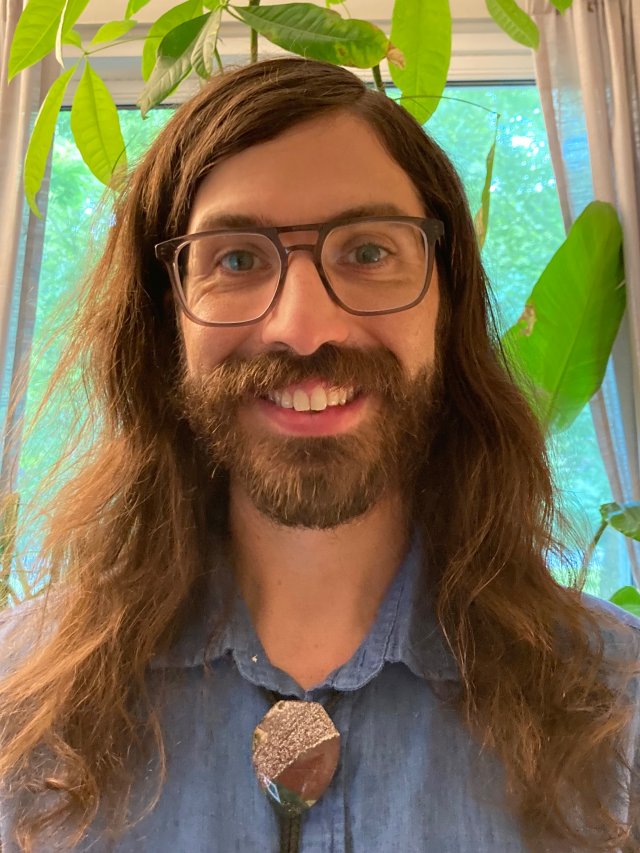Meet EPA Researcher S. Ryan Fulgham, Ph.D.

EPA researcher Dr. Ryan Fulgham focuses on measuring the biosphere-atmosphere exchange of reactive nitrogen and sub-micron particulate matter at Duke Forest in North Carolina.
What research are you working on right now?
EPA and U.S. land management agencies often assess ecosystem risk with deposition models that measure reactive nitrogen, including particulate matter. These models calculate critical loads, or the amount of pollution that leads to harmful changes in an ecosystem. Comparisons between deposition model outputs and original place air-surface exchange measurements are needed to constrain and reduce uncertainty in critical loads.
Currently, I am focused on spinning up fast acquisition (10 Hz) field measurements of total reactive nitrogen, oxidized nitrogen (NOy), oxides of nitrogen (NOx), and size-resolved particulate matter number (60 – 1000 nm in diameter). At Duke Forest, these instruments will directly measure air-surface exchange over the hardwood forest and grass field using the eddy covariance technique. We will sustain these field measurements for at least one year to better understand seasonal variability as well as emission and deposition processes behind reactive nitrogen and particle fluxes.
Tell us about your background.
I earned my Ph.D. at Colorado State University where Delphine Farmer was my adviser. My research there focused on seasonal, canopy-scale flux measurements of carboxylic acids above a Colorado pine forest. To explain bi-directional fluxes of acids with limited local sources, I examined the hypothesis that wetting and drying of forest surfaces potentially act as a sink and a source of the acids, respectively.
Before graduate school, I earned my B.S. in environmental science at Delta State University. There, I focused on how agrichemicals impacted water quality at field-forest interfaces. Fun fact: When applying to graduate schools, I was convinced that I wanted nothing to do with Atmospheric Chemistry. Today, I’m glad I changed my mind!
When did you first know you wanted to be a scientist?
The chemistry class at my high school was notorious among students for being the most difficult course. I felt proud when I earned an A and that the material came naturally. Through those feelings, I realized that I could become a scientist and maybe even be pretty good at it. After that, I began to see chemistry applications all around me, particularly in agriculture since I grew up on a farm. Once I took on the identity of a scientist, I saw the world through a different lens. My curiosity hasn’t abated since then.
What do you like most about your research?
Although I may get frustrated, my favorite part of research is troubleshooting, particularly as a team. In troubleshooting, I get to practice patience, think holistically, learn more about processes and components, leverage the different thinking of others, and enjoy the elation of solving the problem (sometimes).
How does your science matter?
For me, it’s all about air quality and global climate. Human and ecosystem health depend on maintaining a delicate balance in Earth’s atmosphere. Atmospheric chemistry and global climate are complex, but science has made incredible progress at constraining many processes. Because the atmosphere is so complex, yet interconnected, learning more about even the most innocuous molecule could be an important finding. Scientists having made such marvelous progress (i.e. acid rain, chlorofluorocarbons) is proof that our work makes a difference.
If you weren’t a scientist, what would you be doing?
I usually joke with my wife that I’d be a great stay-at-home dad, but maybe I’d prefer to go whole hog on playing rock & roll music or writing science fiction or horror scripts. I also really enjoy teaching powerlifting technique and programming.
What advice would you give a student interested in a career in science?
Get involved with research as soon as you can. Play with electronic kits. Learn to write code. Read! Science often (usually) doesn’t go according to plan. Obstacles or points of confusion can be frustrating, but they’re opportunities to learn and grow!
If you can have any superpower, what would you choose?
Total recall – never forgetting any sensory input and being able to pull any memory in an instant
If you could have dinner with any scientist, past or present, who would you choose and what would you talk about?
Dirac. I’d like to hear one of his quantum mechanical lectures, particularly relating to anti-matter, and to hear some of his mountaineering stories over dessert and coffee (probably tea for him).
What do you think is our biggest scientific challenge in the next 20/50/100 years?
Addressing global climate change: both reducing uncertainty in projections and capturing greenhouse gases. Otherwise, eliminating scarcity.
Editor's Note: The opinions expressed herein are those of the researcher alone. EPA does not endorse the opinions or positions expressed.
